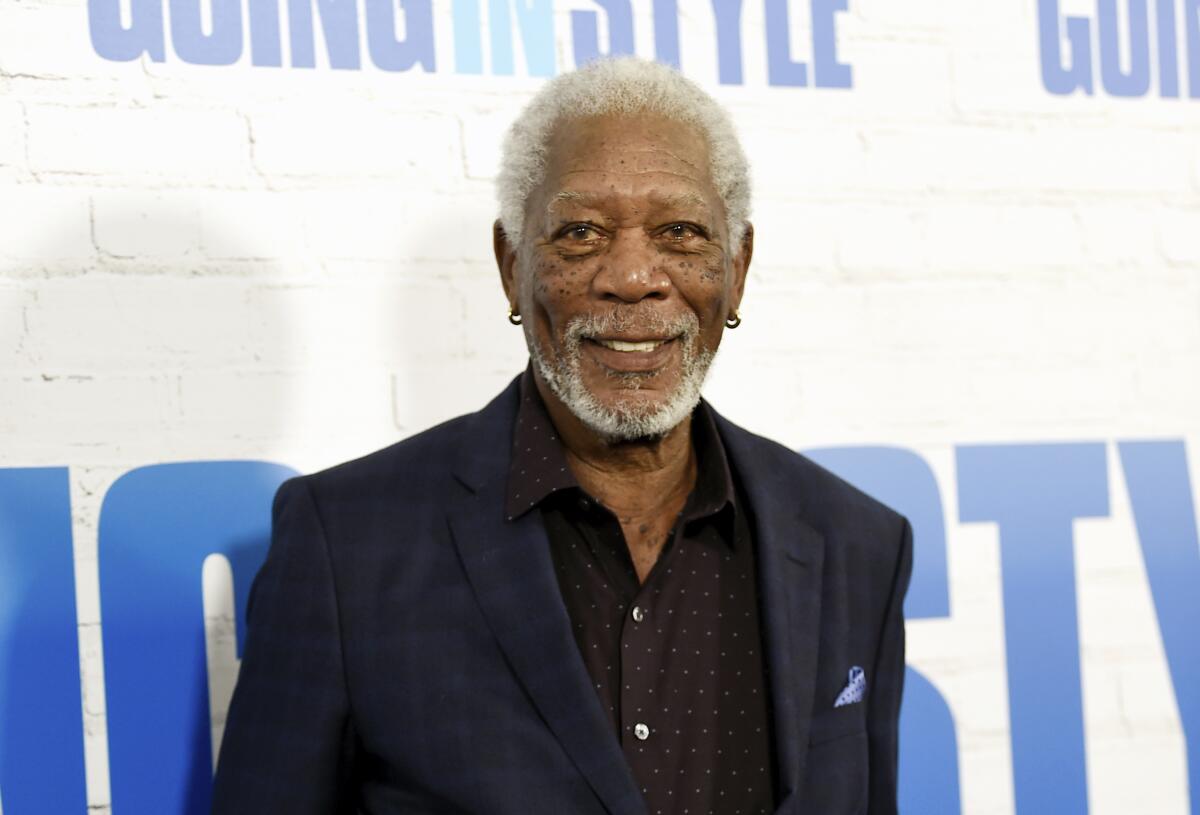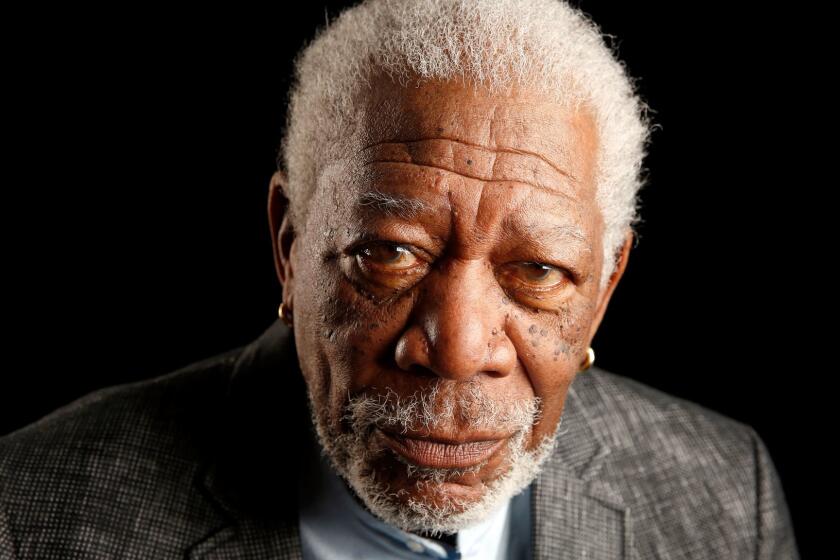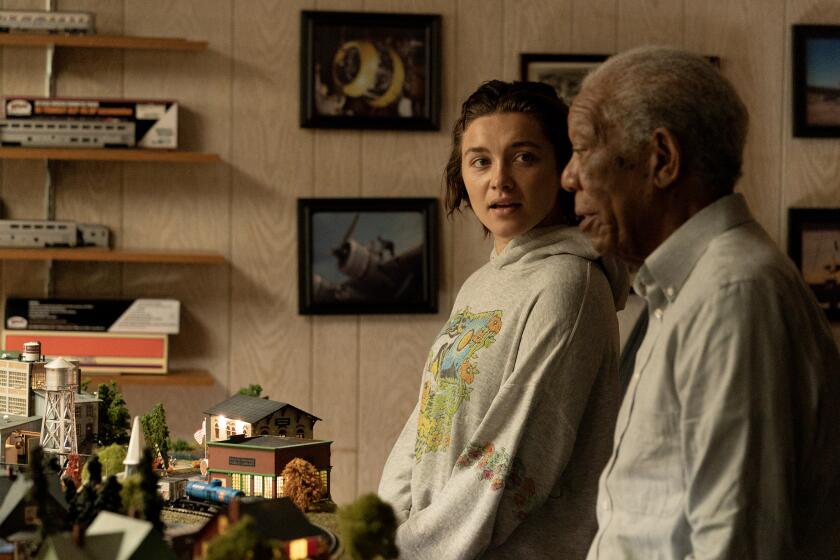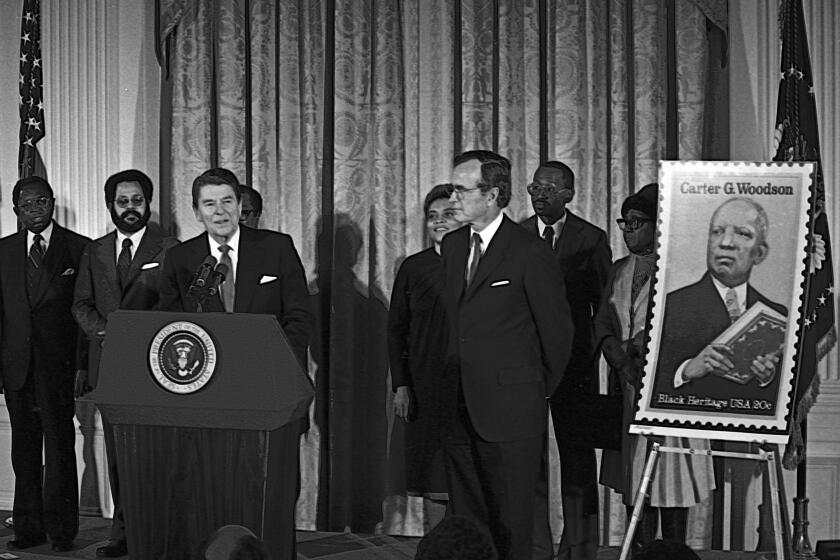Morgan Freeman criticizes Black History Month and the term ‘African American’

Morgan Freeman recently criticized Black History Month and the term “African-American” in a rare interview reflecting on his life and career.
While speaking with the Sunday Times of London to promote his new movie, “A Good Person,” the veteran actor identified Black History Month and the term “African American” as “two things I can say publicly that I do not like.”
“Black History Month is an insult,” he said. “You’re going to relegate my history to a month?”
“Also ‘African American’ is an insult,” he continued. “I don’t subscribe to that title.”
Morgan Freeman isn’t the retiring sort — at least when it comes to his acting career.
Among his issues with the latter is that people “say Africa as if it’s a country when it’s a continent, like Europe.” Sunday Times senior writer Jonathan Dean expanded on Morgan’s statements by pointing out that terms such as “Irish Americans” or “Italian Americans” are used to refer to white people — “not Euro-Americans.”
“Black people have had different titles all the way back to the N-word and I do not know how these things get such a grip, but everyone uses ‘African American,’” Freeman said.
“What does it really mean? Most Black people in this part of the world are mongrels.”
Zach Braff’s ‘A Good Person’ takes some melodramatic turns that can be forgiven, thanks to Florence Pugh and Morgan Freeman’s stellar performances.
When reminded by Dean that fellow actor Denzel Washington once said, “I’m very proud to be Black, but Black is not all I am,” Freeman replied, “Yes, exactly.”
“I’m in total agreement,” he said. “You can’t define me that way.”
Freeman also reflected on how the acting profession and entertainment industry have evolved since he got his start in the 1960s and landed his big Hollywood break in the 1980s.
“The change is that all people are involved now,” he said. “Everyone. LGBTQ, Asians, Black, white, interracial marriages, interracial relationships. All represented. You see them all on screen now and that is a huge jump.”
Why do we even still have Black History Month? The growing number of right-wing attacks on teaching America’s racial history offers a good answer.
The “Shawshank Redemption” and “Driving Miss Daisy” star has noticed a shift in his own career as well, explaining that he has become too big of a household name to be considered a character actor anymore.
“When my career started in film I wanted to be a chameleon,” he said. “I remember [Robert] De Niro early on, doing very different parts. Almost unrecognisable as the same actor. I had opportunities like that. But as you mature in this business, eventually you become a star. Then you’re pretty screwed ... You play a lot of the same type of role — people hire you and say, ‘It’s you that I want.’ And you live with it.”
“I don’t think I’ve done much in the last ten years that was much different,” he added. “‘Driving Miss Daisy’ and ‘Glory’ were different. Now? It’s just . . . me. The character will adapt itself to you rather than the other way round, so I do what piques my interest. Sometimes it’s just the money alone.”
More to Read
Only good movies
Get the Indie Focus newsletter, Mark Olsen's weekly guide to the world of cinema.
You may occasionally receive promotional content from the Los Angeles Times.














